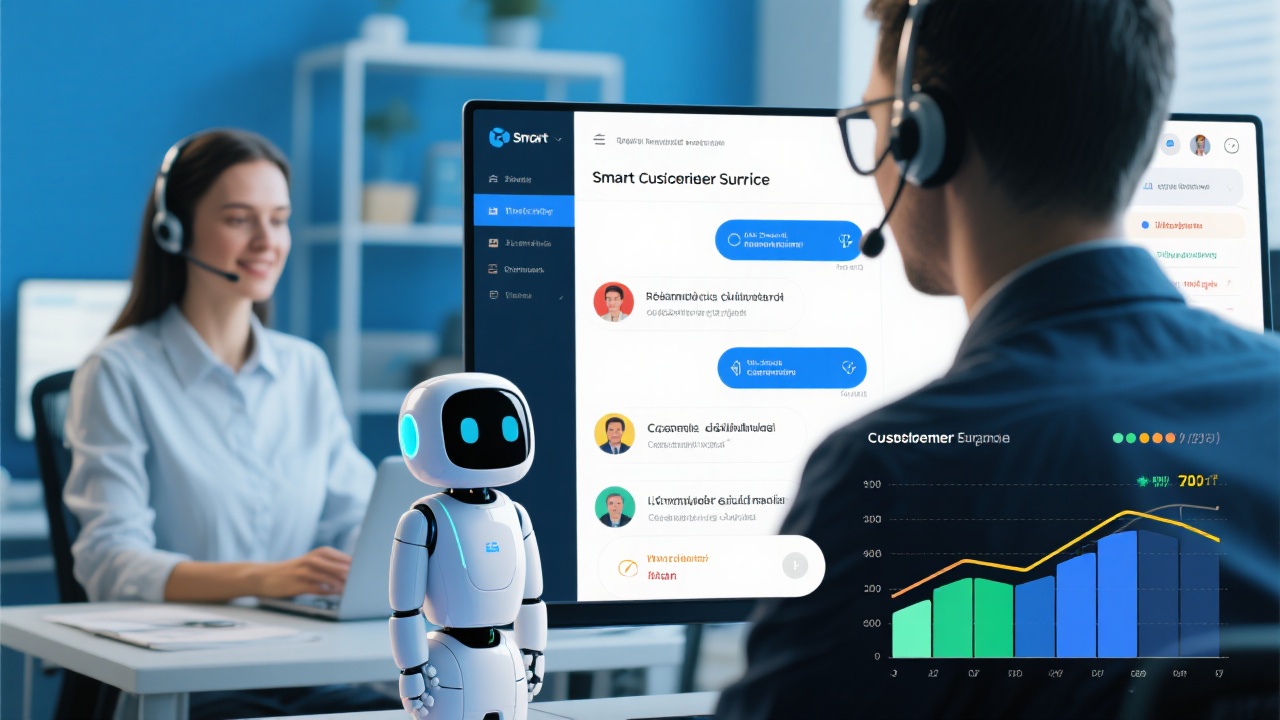 400-076-6558智领未来,外贸超级营销员
400-076-6558智领未来,外贸超级营销员
 400-076-6558智领未来,外贸超级营销员
400-076-6558智领未来,外贸超级营销员

In the highly competitive global market, expanding foreign trade customers is of paramount importance for businesses aiming to thrive. However, they are currently facing a series of pain points. The market competition is extremely fierce, with numerous companies vying for the same customer base. The accuracy of customer acquisition is low, which means a large amount of marketing resources are wasted on non - potential customers. Traditional marketing methods are inefficient, time - consuming, and costly, often failing to keep up with the fast - paced business environment.
Social media, on the other hand, has significant advantages in reaching cross - border customers. It has a large user base, strong interactivity, and wide geographical coverage. With billions of users worldwide, social media platforms offer an unparalleled opportunity to connect with potential customers across different countries and cultures. The ability to interact directly with customers in real - time also allows businesses to build stronger relationships and gain valuable feedback.
The emergence of social media intelligent marketing tools is a response to the need for more efficient and effective customer acquisition in foreign trade. This article aims to analyze the application logic and actual effects of these tools, providing a reference for foreign trade enterprises to expand their customer base efficiently.
Social media intelligent marketing tools are integrated with social media platforms and supported by big data analysis and AI algorithms. Their functions include customer identification, automated operation, and effect analysis. These tools can analyze vast amounts of social media data to identify potential customers, automate marketing processes, and measure the effectiveness of marketing campaigns.
These tools rely on several core technologies. Big data mining is used to collect and analyze large - scale social media data. Natural Language Processing (NLP) enables the tools to understand and process human language, such as analyzing customer comments and inquiries. Machine learning algorithms can continuously learn from data to improve the accuracy of customer identification and marketing strategies. User profiling technology creates detailed profiles of potential customers based on their social media behavior, preferences, and demographics.
There are several types of social media intelligent marketing tools:
Social media intelligent marketing tools can analyze user profiles in the target market, including their geographical location, industry, and demand preferences. For example, a tool can analyze the social media behavior of users in a particular country to identify those who are interested in a specific product or service. By targeting these high - potential customer groups, businesses can improve the efficiency of their marketing campaigns.

These tools can generate multi - language content suitable for different markets. For instance, AB客 can create product descriptions in multiple languages, taking into account the cultural and linguistic differences of different regions. The content can then be pushed to users based on their behavior, such as their browsing history and interaction with previous content.
AI chatbots can provide 24 - hour cross - time - zone customer service. They can answer frequently asked questions, provide product information, and even assist in the sales process. Automatic email marketing tools can also send follow - up emails to potential customers at the right time, increasing the chances of conversion.
The tools can track customer interaction data, such as browsing records and consultation frequency. By analyzing this data, they can mark high - intention leads and trigger appropriate follow - up strategies. For example, if a customer frequently visits a product page and asks detailed questions, the tool can flag them as a high - intention lead and prompt the sales team to contact them.
Integrating social media customer data with the CRM system allows for the full - lifecycle management of customers. Businesses can track the entire customer journey, from the first contact on social media to the final purchase and after - sales service. This integration helps improve customer satisfaction and loyalty.
Social media intelligent marketing tools can significantly reduce manual operations. For example, content publishing and customer screening can be automated, saving a large amount of time and effort. They can also shorten the customer response time, improving the overall efficiency of the marketing process. Some studies show that using these tools can increase the marketing process automation level by up to 50%.
By precisely positioning customers, businesses can reduce ineffective marketing investments, thus lowering the customer acquisition cost. Additionally, the tools can save human and time costs by automating repetitive tasks. On average, companies can save up to 30% of their marketing costs by using these tools.
The data - driven approach of these tools allows businesses to screen high - intention customers. This leads to an increase in the conversion rate and repeat purchase rate. In some cases, the conversion rate can be improved by 20% - 30% after using social media intelligent marketing tools.
These tools can break through geographical and language barriers, enabling businesses to reach more customers in emerging markets. With multi - language content generation and global social media reach, companies can expand their market share in regions they previously had limited access to.
However, there are also some challenges in using these tools. Data privacy and compliance are major concerns, as the tools deal with a large amount of customer data. AI - generated content may also have cultural adaptation issues, leading to misunderstandings or ineffective marketing. Moreover, the use of these tools often requires certain professional skills, which may pose a challenge for some small and medium - sized enterprises.
Let's take a look at two case studies. A cross - border e - commerce company used a social media intelligent marketing tool for customer positioning. By analyzing social media data, it was able to identify high - potential customers in several emerging markets. After implementing targeted marketing campaigns, the company saw a 40% increase in customer volume and a 25% increase in conversion rate within six months.

A manufacturing company used AB客's content intelligent generation and distribution tool. It created multi - language product brochures and videos, which were automatically published on various social media platforms. As a result, the company's brand awareness increased significantly, and it received 30% more inquiries from international customers.
In conclusion, social media intelligent marketing tools play a crucial role in foreign trade customer expansion. They can empower businesses to achieve more precise and efficient operations. To optimize the use of these tools, enterprises should choose the tools that suit their specific needs, strengthen their cross - cultural marketing capabilities, and pay attention to data security and compliance.
In the future, these tools are expected to become more intelligent. Functions such as sentiment analysis and predictive marketing will be more widely used. They will also be further integrated with multi - channel marketing, providing a more comprehensive solution for foreign trade customer expansion.
Discover How Social Media Intelligent Marketing Tools Can Transform Your Foreign Trade Business!
.png?x-oss-process=image/resize,h_100,m_lfit/format,webp)
.png?x-oss-process=image/resize,h_100,m_lfit/format,webp)

.png?x-oss-process=image/resize,h_100,m_lfit/format,webp)
.png?x-oss-process=image/resize,h_100,m_lfit/format,webp)
.png?x-oss-process=image/resize,h_100,m_lfit/format,webp)
.png?x-oss-process=image/resize,h_100,m_lfit/format,webp)
